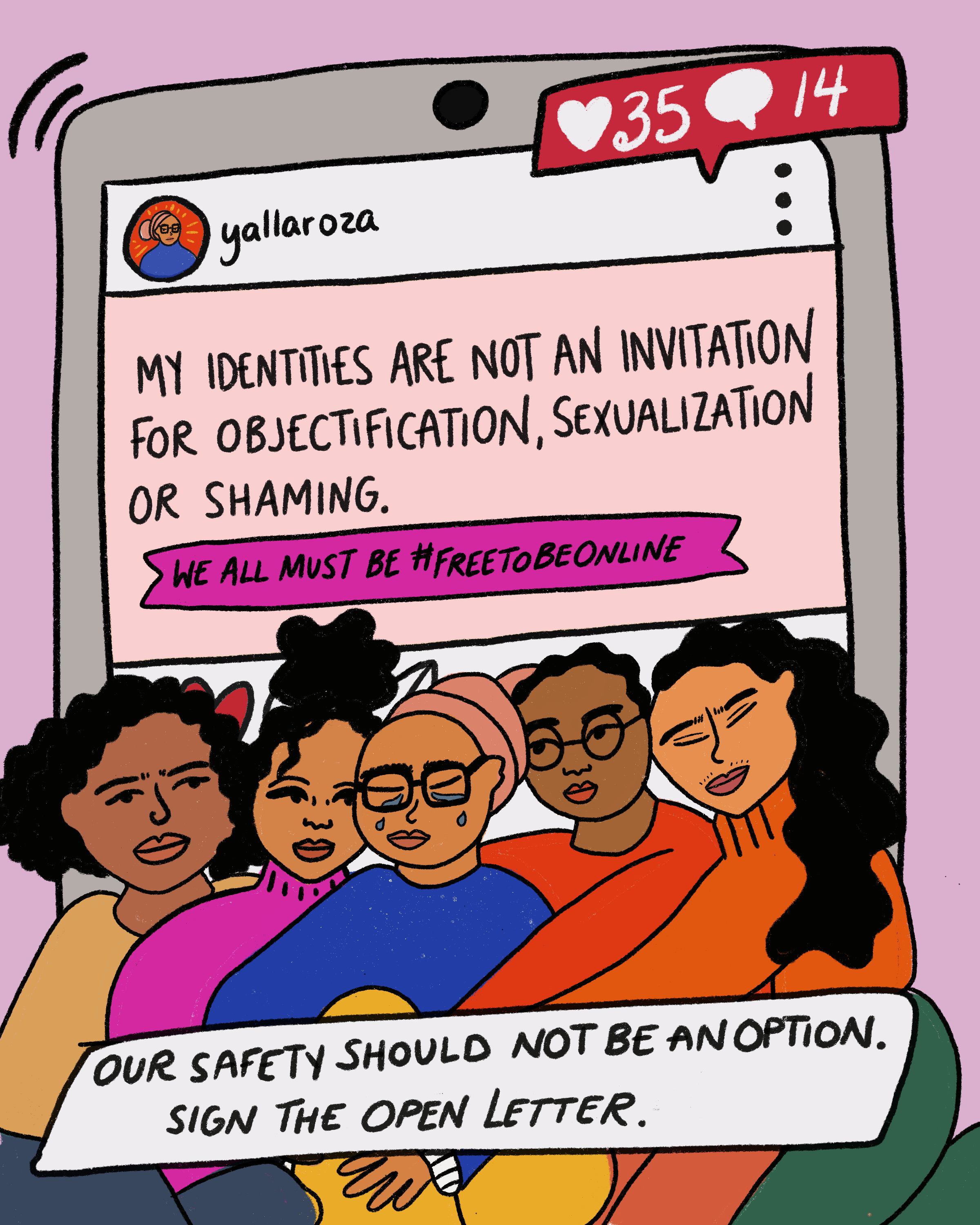Publish Date: Nov 30, 2020
Throughout 2020 and following the COVID-19 crisis, our professional and social lives have moved increasingly online. Many of these online spaces are not safe for girls, who are regular targets of online abuse just because they are young and female. If they are politically outspoken, disabled, Black or identify as LGBTIQ+, it gets worse. Girls are being physically threatened, racially abused, sexually harassed and body shamed. This causes real harm and it’s silencing their voices.
Unstereotype Alliance ally, Plan International, released a report this year, ‘Free to be online? Girls’ and young women’s experiences of online harassment,’ finding that girls who use social media are routinely subjected to explicit messages, pornographic photos, cyberstalking and other distressing forms of abuse, and reporting tools are ineffective in stopping it. One in five girls (19%) have left or significantly reduced use of a social media platform after being harassed, while another one in ten (12%) have changed the way they express themselves.
Attacks are most common on Facebook, where 39% say they have suffered harassment, but occur on every platform included in the global study including Instagram (23%), WhatsApp (14%), Snapchat (10%), Twitter (9%) and TikTok (6%). Abuse also damages girls’ lives offline, with one in five (22%) of those surveyed saying they or a friend have been left fearing for their physical safety, while 44% say social media companies need to do more to protect them.
Understanding the risk that COVID-19 poses to worsening this digital gender divide, Plan International launched the #FreeToBeOnline campaign for International Day of the Girl 2020. Girls around the world wrote an open letter to Facebook, Instagram, TikTok and Twitter calling on them to create ways to report abuse and harassment that really works for girls. Over 50,000 people signed this letter in solidarity with girls who are standing up against online abuse and harassment.
Off the back of this initiative, Instagram, WhatsApp and Facebook have committed to work with Plan International to kick off a series of listening sessions with girl activists from around the world. These ‘Girls Get Equal Listening Sessions’ will give policy and products teams from the social platforms an opportunity to hear directly from girls, in all their diversity, about their lived experiences on social media, creating a dialogue about more ways the companies can continue to invest in protecting girls from bullying and harassment.
Cindy Southworth, Head of Women’s Safety at Facebook, underscored the value in lifting girls’ voices in the efforts to make platforms safer: “Abuse of women on the internet is a serious problem, one we tackle in a variety of ways – through technology that identifies and removes potentially abusive content, by enforcing strict policies and by talking with experts and people experiencing harassment or abuse. We know this is a particular challenge and really value the opportunity to work with Plan International and hear directly from young women affected by these issues so we can improve and ensure we are a platform where women feel safe,” she said.
Plan International has brought together an intersectional group of 10 girl activists from its youth networks and five young women representing civil society organisations to participate in the Girls Get Equal Listening Sessions. This group will collectively bring perspectives from Japan, USA, Brazil, India, UK, Spain, Palestine, Rwanda, Germany, Benin, Kenya and the Philippines.
COVID-19 must not worsen the digital gender divide. We must create and protect online spaces that allow girls to continue their education, seek support, socialise, challenge traditional gender stereotypes and speak out for gender equality online without fear. Plan International will continue to work with girls, allies, and social media companies to address online gender-based violence and for recommendations from girls to be made into real commitments.

